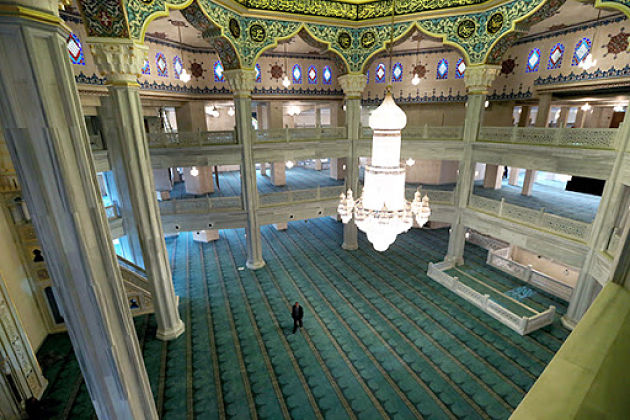Yesterday, the leading official centralized Muslim organization in Russia, the Spiritual Administration of Muslims of Russia (DUM RF), published its decision to temporarily suspend all collective and Friday prayers in mosques and prayer houses under its jurisdiction. The reason is obvious – the emerging pandemic of the coronavirus in Russia and the unjustifiable risks that any mass gatherings pose to believers in this situation.
The aforementioned decision of the DUM RF includes a recommendation to conduct Friday prayers online, which we will not evaluate from a theological point of view, as we do not have the necessary expertise for this, and we will leave the analysis of this issue to those who do. However, leaving aside the question of whether Friday prayers should be performed online or whether they should be replaced by individual or small group (family) noon prayers (zuhr) during this period, the main point is clear – it is currently not possible to perform Friday prayers and other collective prayers in mosques in the standard manner, which is decided by centralized Islamic organizations in one Muslim (and not only Muslim) country after another.
By the way, this decision also mentions a nice measure – in order to prevent mosques from being empty, an imam or a person in charge will continue to pray and read the Koran alone in them. A similar decision was made by the Chief Rabbi of Russia Berl Lazar, the head of the Federation of Jewish Communities of Russia – to completely close the Moscow Choral Synagogue from midnight on March 18.
And what about the Russian Orthodox Church (ROC), which just two days ago held a mass, large-scale kissing of relics in its temples? Faced with mass criticism of its irresponsible behavior, as well as criticism from the authorities who allow it while demanding that other denominations stop mass prayers, the ROC recently took certain restrictive measures.
Meanwhile, the well-known Russian Orthodox dissident and contemporary theologian, former deacon Andrey Kurayev, criticized this decision as inconsistent, comparing it to a similar decision by the reviled Orthodox Church of Ukraine (OCU) in the ROC. In addition to practical precautions similar to those recommended by the ROC, but with a more extensive list, the OCU’s decision emphasizes the need to comply with all decisions of the Ukrainian authorities related to the coronavirus epidemic.
The decisions of the Ukrainian authorities in this regard differ in greater immediacy and radicalism than the half-hearted decisions of the Russian authorities, which allows the ROC to ignore them. Therefore, in the end, we see that both as citizens and as Orthodox Church structures in Ukraine are much more concerned about the lives and safety of their compatriots than the corresponding structures in Russia.
As a result, a situation arises in Russia where Muslim and Jewish organizations are concerned about the health of Russians, but the political and spiritual leaders of the “nation-building people” are not even for a moment.

